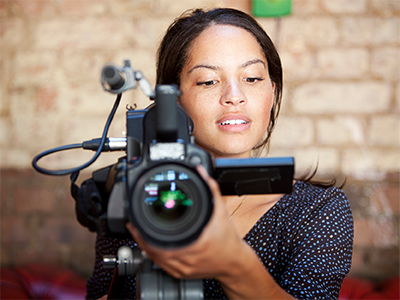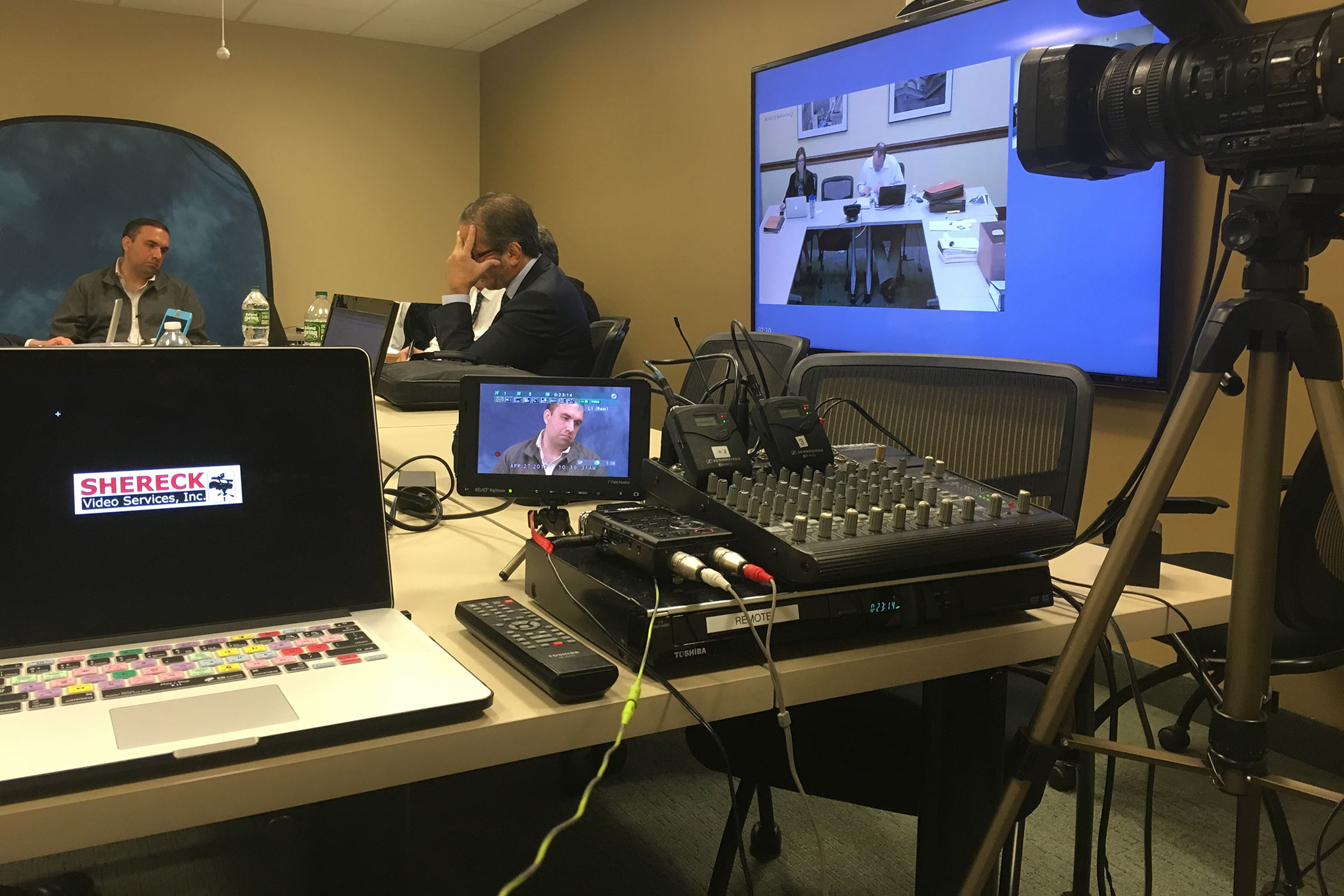Delving Into the Systems of Legal Videography: Introduction Its Procedure in Shielding Genuine Aesthetic Testament for Judicial Proceedings
In the realm of judicial procedures, the role of lawful videography stands as a cornerstone in maintaining and offering visual proof. As technology remains to advance, the systems behind legal videography have actually become significantly elaborate, providing a critical layer of authenticity to testaments caught on video clip. By delving into the functional ins and outs of legal videography, one can discover the thorough procedures that guard the honesty of visual evidence provided in court rooms - Legal Videography. This exploration not only drops light on the historic development of lawful videography yet likewise means the future fads that may additionally transform exactly how visual testaments are maintained in the world of justice.
Historical Advancement of Lawful Videography
Taking a look at the historical progression of lawful videography discloses a substantial transformation in the recording and presentation of aesthetic proof within the legal landscape. In the past, lawful proceedings heavily depended on written transcripts and pictures to document events and offer evidence. With the arrival of video clip modern technology, the legal sector witnessed a standard change in just how visual testament was recorded and offered.
The development of legal videography can be mapped back to the late 20th century when improvements in video clip recording devices made it much more accessible for use in courtrooms. This technological development not just enhanced the precision and dependability of aesthetic proof however likewise changed the method instances existed to discretionary (Legal Videography). Lawyers began to recognize the persuasive power of video recordings in conveying emotions, nuances, and non-verbal cues that created photographs or records alone might not record successfully

Innovation Developments in Video Clip Paperwork
What crucial technological improvements have transformed video clip documents in the lawful field? The legal area has seen significant innovations in video clip documentation modern technology that have actually boosted the authenticity and dependability of visual proof in judicial process.
Moreover, innovations in video clip security and watermarking technologies have reinforced the safety and security and tamper-proof nature of video evidence, safeguarding it versus unapproved alterations or meddling. The development of cloud storage space remedies and remote access capacities has streamlined the storage, retrieval, and sharing of video evidence, helping with seamless collaboration amongst legal specialists and ensuring reliable accessibility to critical visual testimonies when required. These technological improvements in video documents have actually definitely transformed the legal field, improving the precision, integrity, and admissibility of aesthetic proof in judicial procedures.
Duty of Lawful Videographers in Court Room Setups
The development of video documents modern technology in the lawful area has actually necessitated a critical function for lawful videographers in courtroom setups, making sure the integrity and dependability of visual testaments offered during judicial proceedings. Legal videographers play a fundamental function in recording and preserving precise aesthetic evidence that can be pivotal in litigation. Their obligation includes establishing up equipment, videotaping proceedings, and generating high-quality videos that properly reflect the occasions in the court.
In court setups, lawful videographers must stick to stringent guidelines and standards to keep the credibility of the visual document. They need to have a keen eye for information and a complete understanding of legal treatments to make sure that the footage they capture is a real representation of the events that took place. Additionally, legal videographers often work very closely with lawful advice groups to make sure that the video clip proof straightens with the instance's needs and can be efficiently presented in court to support the lawful debates being made. Overall, the function of lawful videographers in courtroom setups is indispensable in maintaining the principles of justice and making certain the openness of lawful procedures.

Ensuring Admissibility and Integrity of Video Clip Evidence
To preserve the credibility of visual evidence provided in lawful procedures, guaranteeing the admissibility and stability of video proof is a critical duty for lawful videographers. Admissibility refers to the approval of proof by the court, and for video clip proof to be acceptable, it needs to meet specific criteria. Lawful videographers play an essential role in making sure that the video clips they catch adhere to the rules of evidence, such as reliability, importance, and credibility.
Honesty of video evidence entails preserving the originality and accuracy of the video from the moment it is videotaped till it is offered in court. This consists of securely saving the video clip data, recording the chain of safekeeping, and avoiding any tampering or modifications. Legal videographers must comply with rigorous procedures to assure the stability of the video evidence and avoid any difficulties to its credibility.
Future Trends in Legal Videography
Offered the increasing reliance on technology in legal procedures, legal videographers are positioned to embrace ingenious innovations forming the future of visual statement capture and presentation. check it out Among the popular fads on the perspective is the integration of virtual fact (VR) and boosted reality (AR) modern technologies into lawful videography. These technologies have the possible to transform how visual evidence exists in courts, allowing courts and courts to submerse themselves in the scene of the criminal offense or event.
Furthermore, using expert system (AI) formulas for video analysis is expected to streamline the procedure of evaluating and evaluating big amounts of video clip footage. AI can aid in determining crucial minutes, abnormalities, and patterns within video clips, enhancing the efficiency of legal investigations.

Final Thought
In conclusion, legal videography has actually played an essential duty in giving authentic visual evidence for judicial procedures. Through technological developments and the know-how of legal videographers, the integrity and admissibility of video proof are guaranteed in courtroom settings. As lawful videography remains to progress, it will be vital to maintain requirements that preserve the accuracy and dependability of aesthetic testimony for the future of lawful proceedings.
Taking a look at the historical development of lawful videography discloses a considerable change in the catching and discussion of visual proof within the legal landscape.The development of video documentation technology in the lawful field has demanded a critical role for legal videographers in other court room setups, ensuring the stability and integrity of aesthetic testaments provided throughout judicial process. Furthermore, legal videographers often function closely with legal teams to make certain that the video proof straightens with the situation's needs and can be effectively presented in court to sustain the legal arguments being made.To preserve the reputation of aesthetic proof presented in legal procedures, guaranteeing the admissibility and stability of video clip evidence is an important responsibility for lawful videographers. As legal videography proceeds to advance, it will be essential to maintain criteria that preserve the accuracy and reliability of aesthetic testament for the future of legal proceedings.